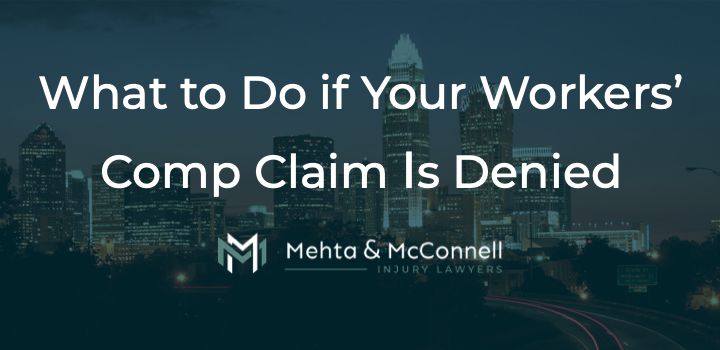
What Happens After the Injury?
After you are injured at work, your employer and its workers’ compensation carrier will likely file a written report of the injury.
You will be given a copy of the written report and you will then have the option to file a workers’ compensation claim on a North Carolina Industrial Commission Form 18.
The information you write on Form 18 will be used to evaluate whether your claim is compensable.
It’s prudent to consult an experienced attorney before completing Form 18 to ensure you don’t include information that will weaken your claim.
After you file a Form 18, the insurance company has 30 days to decide whether to accept or deny your claim.
Depending on the circumstances and severity of the injury, the insurance company may decide to accept or deny your claim even before you file a Form 18.
To get help filing your form, schedule a call today.
What Happens if My Claim is Denied?
The Defendants will file a Form 61 if they are denying your claim. The Form 61 will list the reason(s) for the denial.
The following are some common reasons for denying workers’ compensation claims in North Carolina:
- The Defendants claim your injury was not caused by an accident.
- The Defendants claim your employment did not place you at an increased risk and cause you to develop an occupational disease.
- The Defendants allege your impairment or intoxication was the cause of your work injury.
- The employer claims you were not their employee on the date of injury.
- The Defendants don’t think you are credible.
- The employer claims it didn’t receive timely notice of your injury.
If your claim is denied, you have the burden of proving to the North Carolina Industrial Commission that your claim should be found compensable. It can be difficult to establish a compensable claim without having an experienced workers’ compensation attorney representing you.
Both of the attorneys at Mehta & McConnell are certified by the North Carolina State Bar as specialists in workers’ compensation law. To become board certified specialists, they had to pass a rigorous examination and complete a review process by their peers.
We have successfully litigated cases before all levels of the North Carolina Industrial Commission, Court of Appeals, and Supreme Court.
We will help you evaluate if litigation makes sense in your case and if so, we know the steps to take to increase your chances of receiving a favorable decision.
Average Workers’ Comp Settlement for a Back Injury
Common Construction Accidents in NC
Can the Insurance Company Only Deny Parts of My Claim?
In some cases, the Defendants will acknowledge you sustained a compensable injury, but they will deny that certain medical treatment is related to your injury.
Or, the insurance company will authorize your medical treatment, surgery, or MRI but argue that you are not entitled to receive disability benefits.
The North Carolina Industrial Commission has administrative procedures for resolving some of these disputes in accepted claims.
Either party can appeal an administrative decision and request a full evidentiary hearing.
Types of Factory and Warehouses Accidents
Workers’ Compensation for Undocumented Workers
Can I Sue My Employer for Denying My Claim?
Injured workers often wonder if they are suing their employer if they file a workers’ compensation claim. A workers’ compensation claim is not a lawsuit in civil court.
Instead, the workers’ compensation system was created as a substitute for civil lawsuits.
Workers’ compensation claims in North Carolina are filed with the Industrial Commission, which is a state administrative agency.
The Industrial Commission administers your workers’ compensation claim and will decide any disputes that arise in your claim.
If your claim is denied, you will have to prove it is compensable at a full evidentiary hearing.
There are legal elements that must be met for your claim to be compensable.
You have the burden of proving each and every element of your claim.
The hearing process is lengthy and can consume you emotionally. The hearing process is often not cost-effective, and it will take months or even years to receive a final decision in your case.
Furthermore, there is no guarantee you will receive a favorable decision.
You will have an opportunity to explore a settlement of your claim prior to proceeding to hearing.
Almost all cases proceed to mediation before the hearing.
A reasonable settlement at mediation is often a better outcome for an injured worker than going through the lengthy hearing process because you will be able to receive monetary compensation for your injury and move on with your life sooner.
If your case is denied, we will evaluate your chances of prevailing at the hearing and discuss why your workers’ comp may have been denied.
We will help you decide whether a settlement makes sense in your case.
Contact us for a free consultation about your claim. Remember – we don’t get paid unless you do.
We will work to obtain the best outcome for you, either through settlement or litigation.

